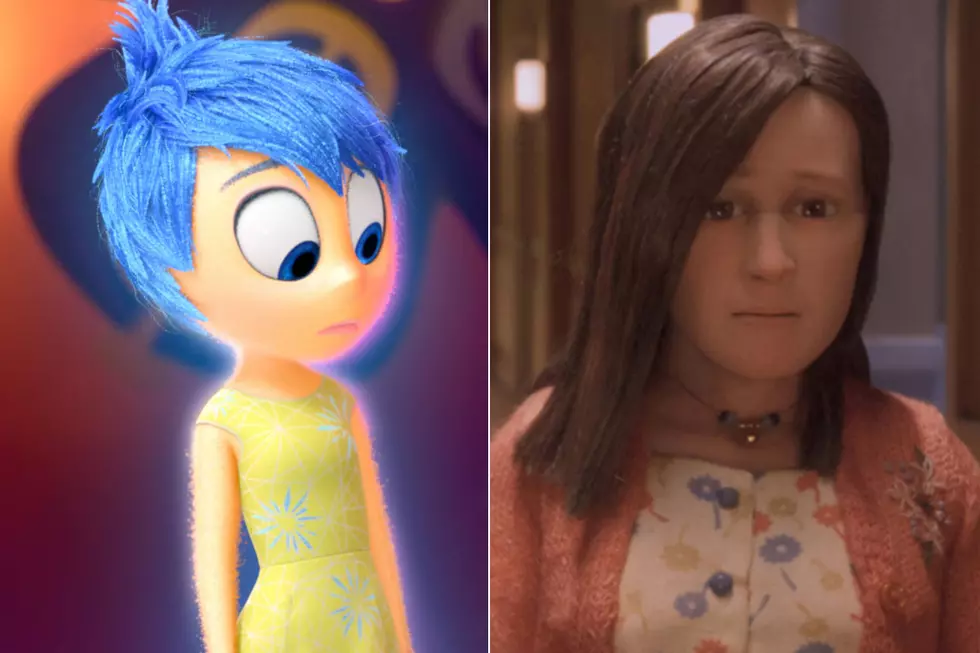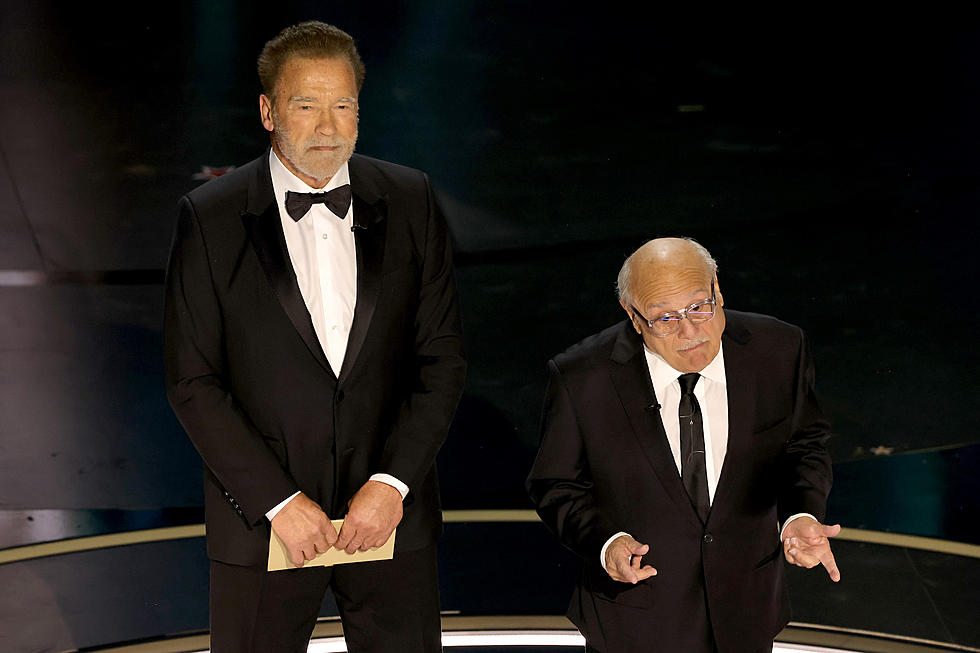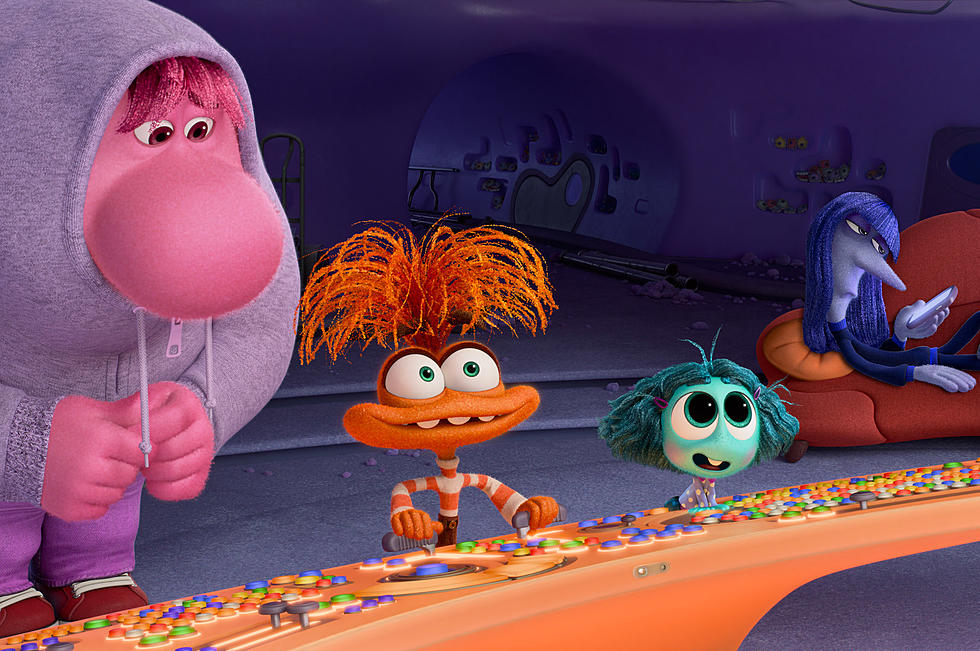
Previewing the ‘Inside Out’ and ‘Anomalisa’ Animated Oscar Showdown
What qualities signify the best movie of the year? Could it be one that thoughtfully examines the human condition in the most striking way? Perhaps one that makes you laugh as much as it makes you cry and introspect over hard-to-swallow truths. Maybe even a movie that’s so visually dynamic its detailed beauty elevates the wonder of its evocative story. Now here’s the kicker: what if that movie was animated?
Two movies this year fit that bill, two movies that are more profound and more telling of the human experience than most films with actual people in them. And these are probably two films one wouldn’t normally associate with one another besides discussions surrounding the Oscar category they’ll both dominate, Best Animated Feature Film. One is Pixar’s Inside Out, the warm and imaginative story of the emotions operating inside of an 11-year-old girl, and Charlie Kaufman’s latest, Anomalisa, a stop-motion masterpiece about the inescapable mundanity of a middle-aged man’s life. Two films couldn’t be more polar opposites.
2015 has brought us two of the best and most evocative animated features in years.
The fun loving Pixar feature bubbles with vibrant color, thrives on the ecstatic, recognizable voices of Amy Poehler and Bill Hader compared to the muted natural hues of Anomalisa, voiced by only three actors, including Tom Noonan who provides the ubiquitous hum. One explores the innocent fundamentals of a young, untainted life, the simplicity of behavior boiled down to five essential emotions – Joy, Fear, Sadness, Anger and Disgust. It’s only at the end of Inside Out that we reach the complexity (though a Disney level of complexity) of mixed emotions, which resonates with both children and adults. That’s the beauty of Pixar, its films’ ability to swell emotions in all ages, and the studio does it most effectively in Inside Out over other favorites. While we all have love in our hearts for classics like Toy Story, Finding Nemo and even the Best Picture nominated Up, Pixar’s latest is the most universally relatable and communicates the most moving story yet.
Anomalisa on the other hand grapples with the greyed plateau of middle age where spark and vigor have neutralized to one homogenous blob of entrapment. Suppressed by monotony, Michael Stone, voiced by David Thewlis, is the man we travel to Cincinnati with as he sours in the bedrock of life’s mundanity in a local hotel. We slowly learn that (spoiler alert, if you’re avoiding even light spoilers), everyone else around Michael looks and sounds exactly the same, except for Lisa, an exception voiced by Jennifer Jason Leigh. If Inside Out operates on the fascination of what defines and makes us, Anomalisa asks how we eventually lose our idiosyncrasy to the point of stasis. “Who are you?” becomes the pivotal question at the film’s dark existential core. What exactly makes “you” in relation to “me,” and in turn, how does that make me “me”?
Clearly, Anomalisa is meditating on much more matured and philosophical questions than Inside Out, as Kaufman is known so well to do. But the fact that both of these films can evoke such profound musings and realizations in their viewers without the inclusion of a single real-life actor or live-action sequence is a marvel in itself. Think of (spoiler alert) Bing Bong’s sob-worthy self-sacrifice in Inside Out, a reminder of one’s loss of innocence and the dissipation of the childhood imagination. However old you are, Pixar managed to hit the darker edge of growing up with a big purple cotton candy elephant and a rainbow-fueled wagon. On the other end of the spectrum, Anomalisa picks at the scabbing anxieties of being imprisoned by the insipid loneliness of age, revealed magnificently through its intricate puppets. Inside Out‘s director Pete Docter and Kaufman, with co-director Duke Johnson, managed to crack through something utterly human with the many possibilities of animation, breaking a boundary of the imaginative and bringing a pure reality to their films. As Matt Patches of Esquire wrote in his review of Anomalisa, it’s “the most human film of the year. And it doesn’t star a single human.” Our own Matt Singer celebrated the brilliance of Kaufman’s elaborate puppetry, writing “Puppets or not, Michael and Lisa are amongst the richest and most human characters in any movie in recent memory.” Don’t accomplishments like that, where technical feats foster the depth and rawness of a powerful human story, deserve a shot at being honored as the best film of the year?
Since Inside Out opened in June it’s been touted as a shoo-in for the Oscar’s Best Animated Feature, especially since Pixar is always king of the category. But being one of, if not the, most inventive films the studio has made yet, it could easily win the votes of the Academy to make it in the Best Picture race. Only three animated films have ever been nominated, with Beauty and the Beast in 1992, Up in 2009 and Toy Story 3 in 2010, with the latter two winning for Animated in their respective years. But now that 2015 has brought us two of the best and most evocative animated features in years, there’s a chance both could make it into the top 10, and they rightfully should.
When it comes to numbers, both have clearly pleased critics. Inside Out has a 98 percent on Rotten Tomatoes, with one critic saying earlier this week that it should win Best Picture, while Anomalisa has a solid 100 despite the fact it doesn’t open until December 30. Although both face incredibly heavy competition against other dramatic standouts – Spotlight, The Revenant, Steve Jobs, The Danish Girl, Joy, Bridge of Spies, Room, The Martian, Carol, and Brooklyn, among others – there’s no reason Docter or Kaufman’s films should be any less valued for their absence of live-action actors. Both are equally artistic masterpieces in their own right, and both prove that some of the most revelatory and personal storytelling can be told beautifully in ways that perhaps the Academy, and audiences, never expected. I wouldn’t mind one bit to see either take home the Best Picture statue over the others. If anything, such a win would reinvent what we value as worthy of the Oscars' top award and open up the possibilities for future creative feats.
At one point in Anomalisa Michael proclaims, “The flood gates are open and I can’t shut them and I don’t want to!” Let’s open those flood gates.
More From ScreenCrush









